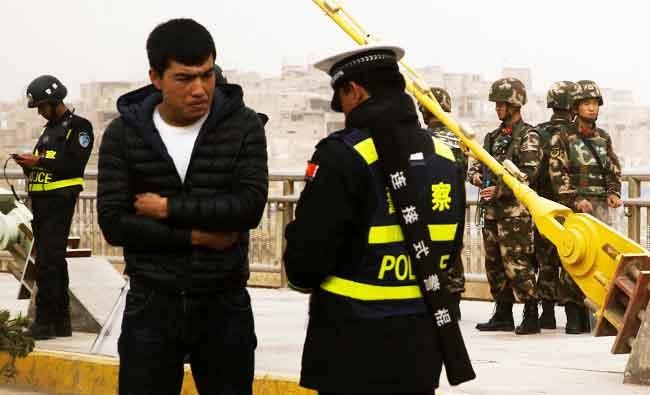JEDDAH: China further tightened restrictions on Muslims in the western region of Xinjiang with a ban on Islamic names for babies in an ongoing crackdown that has already seen Muslim women wearing the niqab and men having “abnormal beards” prohibited from using public transportation.
Xinjiang is home to about half of China’s 23 million Muslims.
“This is just the latest in a slew of new regulations restricting religious freedom in the name of countering ‘religious extremism,’ “ Sophie Richardson, China director at Human Rights Watch (HRW), said in a statement. “These policies are blatant violations of domestic and international protections on the rights to freedom of belief and expression.
“If the government is serious about bringing stability and harmony to the region as it claims, it should roll back — not double down on — repressive policies.”
Names such as Islam, Qur’an, Saddam and Makkah, as well as references to the star and crescent moon symbol, are all unacceptable to the ruling
Communist party. Children with those names will be denied household registration, a crucial document that grants access to social services, health care and education, according to The Guardian newspaper in London.
A full list of names has not yet been published and it is unclear exactly what qualifies as a religious name.
While China blames Uighur extremists for terrorist attacks, experts outside China say Beijing has exaggerated the Uighur threat and that repressive domestic policies are responsible for an upsurge in violence there that has left hundreds dead since 2009.
Last month, Xinjiang authorities fired an ethnic Uighur official for holding her wedding ceremony at home according to Islamic traditions instead of at a government-sanctioned venue, according to Radio Free Asia.
The ban stems from China’s crackdowns on the Muslim Uighur minority in Xinjiang. The Communist Party blames religious extremists for violent incidents that have killed hundreds of people. But Uighur rights groups say the crackdowns violate religious expression.
The ban widens host of restrictions that has already seen staff at train stations and airports prohibit women wearing the niqab and men wearing beards access to transportation.
The restriction on beards is now formalized in the new law, which also stipulates that children cannot have names to “exaggerate religious fervor.”
China bans ‘religious’ names for Muslim babies in Xinjiang
China bans ‘religious’ names for Muslim babies in Xinjiang














